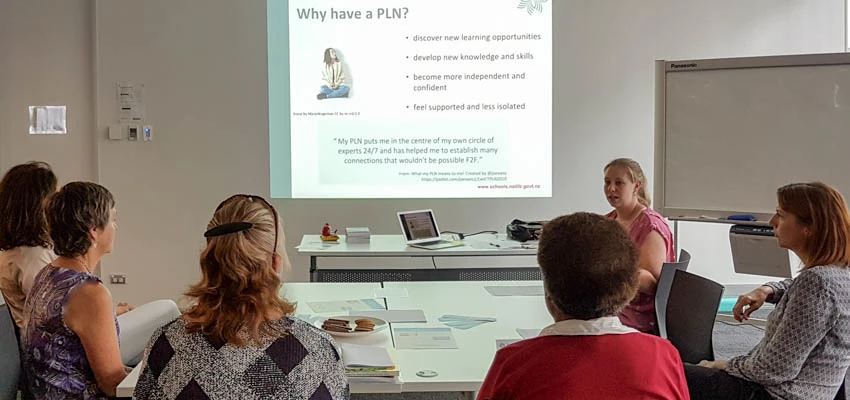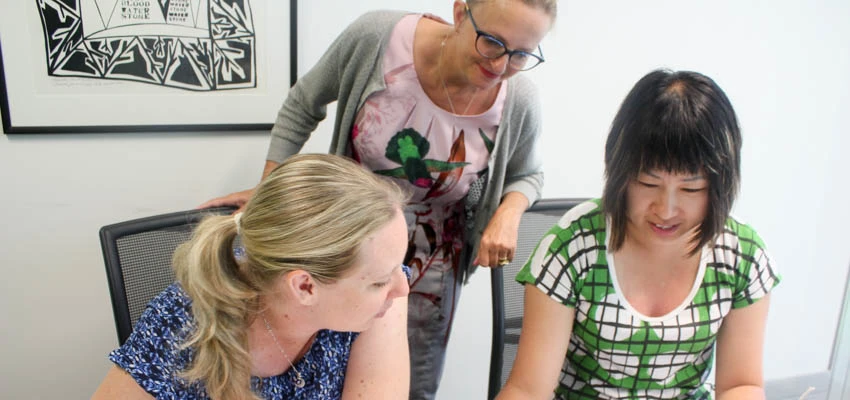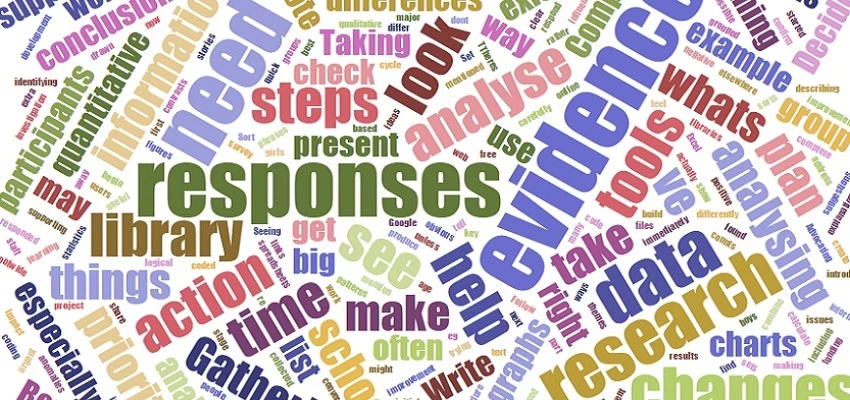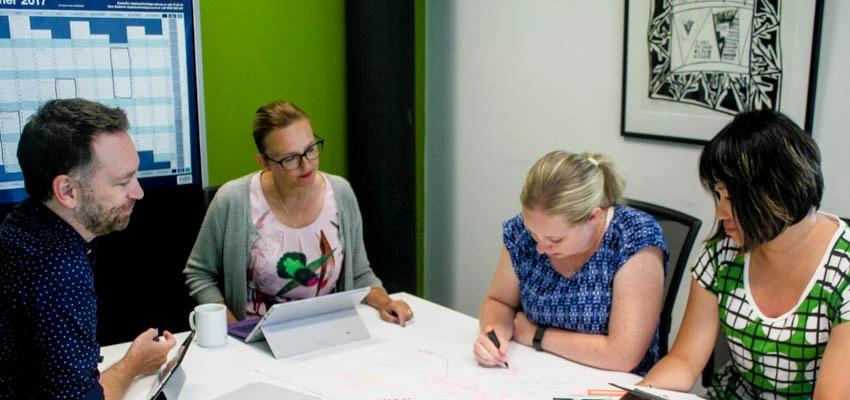Leadership and expertise

Effective school library leadership and expertise creates an environment where the library is a vital part of the school community, with the resources needed to make a valuable contribution to student learning and well-being.
Leadership
Why leadership matters
Effective school library leadership creates an environment where the library is a vital part of the school community, with the resources and expertise needed to make a valuable contribution to student learning and well-being.
The leadership and support of the school’s management team is critical for the library’s success. The development of a school library vision and strategic plan aligned with the school's learning goals and informed by needs, challenges and trends, is essential for your library’s current and future direction.
Leadership is a key factor in successful change. Principals and other school leaders have a fundamental role to play to achieve overall system improvement for our children.
— School leadership that works, ERO (2016)
As a leader, what can you do to strengthen the role and impact of the library?
Strategic leadership
Ensure the role and purpose of the school library are aligned with the school’s vision, strategic and annual plans; and that these are clearly set out in your library’s guiding documents.
Understand how libraries contribute to learning, particularly in raising students’ literacy levels.
Encourage collaboration between the library team and teaching staff, to ensure successful outcomes for all students.
Ensure the library has sufficient resourcing to enable an effective, relevant and consistent library service.
Staff leadership
Encourage and enable library staff to take up professional learning opportunities.
Advocate for your library team as valuable members of staff.
Encourage library team members to lead learning opportunities for other staff relating to library services, resources, and technology.
Leading learning
Encourage library and teaching staff to work closely to develop library services that are aligned with the curriculum.
Ensure the library team understand the need to have high expectations for achievement of all learners.
Use the expertise within your library team to support learning, particularly literacy development (including digital literacy skills), and promoting a love of reading.
Allow learners to play an active part in the school library and regularly take on leadership roles, including leading learning.
Key questions
How do you ensure your library team members develop the right skills and attributes to provide the services your school community needs?
Does your library team have the time and other resources needed to manage day-to-day library functions, specialist tasks, and ongoing service development?
What opportunities do library team members have to use and to share their expertise, with students and other staff?
Expertise
Effective school libraries combine expertise about library services and management, information and literature for children and young people, and tools and strategies to support teaching, learning, and reading for pleasure.
Why expertise matters
When your school library is managed by a team of people with the best possible combination of professional expertise, skills and qualities, they play an important role supporting teaching and learning in your school.
Professional learning experiences that focus on the links between particular teaching activities and valued student outcomes are associated with positive impacts on those outcomes.
— Teacher professional learning and development, Best Evidence Synthesis Iteration (BES) (2007)
How can you develop and make good use of the expertise within your library team?
Developing the expertise of your library team
Ensure all library staff members have job descriptions outlining their roles, responsibilities, and delegated authority.
Undertake regular performance reviews and appraisals for all library staff members.
Enable library staff to engage in continuing professional development and learning networks — to extend and share their knowledge, and help build a strong profession.
Using the expertise within your library team
Use library staff expertise and knowledge of information processes to grow users’ skill for finding, accessing and using information.
Encourage library staff to share their enthusiasm and knowledge about children’s literature, to foster a culture of reading for pleasure within the school community.
Involve library staff in planning, implementing and evaluating school initiatives to develop students’ literacy skills and engagement with reading.
Key questions
How do you ensure your library team members develop the right skills and attributes to provide the services your school community needs?
Does your library team have the time and other resources needed to manage day-to-day library functions, specialist tasks, and ongoing service development?
What opportunities do library team members have to use and to share their expertise, with students and other staff?
Related content

Managing your school library staff
Get ideas and information to help organise and manage your school library team, including job descriptions, performance appraisals, professional qualifications and overseeing student librarians.
Evidence-based school library practice
Use existing research, best practices and evidence you've gathered to guide how you develop your library space, services, and programmes. Learn how to collect and analyse information that will help you meet your users' needs.